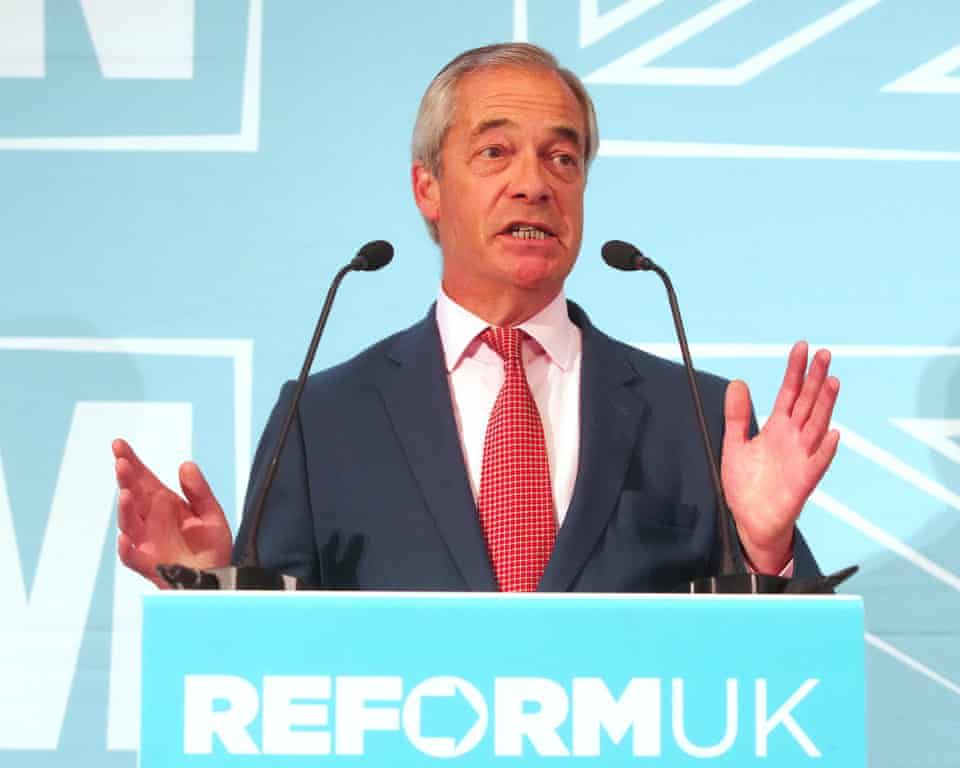Nigel Farage has set out radical plans to withdraw Britain from key human rights treaties and carry out the mass deportation of migrants arriving in small boats, declaring immigration to be a “national emergency” and warning that public anger over asylum has reached breaking point.
In an interview with The Times, the Reform UK leader outlined a programme that would see the country leave the European Convention on Human Rights (ECHR), abolish existing rights to claim asylum, and strike bilateral agreements with nations such as Afghanistan, Eritrea and other countries of origin to facilitate the large-scale removal of people arriving illegally.
Farage argued that Britain’s current asylum system is “not fit for purpose” and insisted that only an uncompromising approach would restore order. “We can be nice to people, we can be nice to other countries, or we can be very tough to other countries. Trump has proved this point quite comprehensively,” he said, invoking the former US president as a model for his proposed policy.
Read Also: Boris Johnsons comeback struggles as Farage leads by 15 points
When asked whether deporting asylum seekers to countries with poor human rights records risked exposing them to torture or death, Farage said his primary responsibility lay with British citizens. “I can’t be responsible for despotic regimes all over the world. But I can be responsible for the safety of women and girls on our streets,” he said.
The remarks come as small-scale but regular protests have erupted outside hotels across England where asylum seekers are being housed. In some cases, the demonstrations have been fuelled by allegations of sexual assaults involving migrants, intensifying pressure on the government and amplifying the rhetoric of anti-immigration campaigners.
Polls suggest that immigration and asylum now rank as the public’s top concern, narrowly ahead of the economy. Reform UK, which won five seats in last year’s general election, has since surged in popularity and in recent weeks has topped national voting intention surveys, positioning Farage as a central figure in Britain’s political debate once again.
Figures underline the scale of the issue. In 2024, more than 37,000 people crossed the Channel from France to Britain in small boats — a 25% increase on the previous year. The arrivals, predominantly from Afghanistan, Syria, Iran, Vietnam and Eritrea, represented around 9% of net migration. Yet despite the heated political discussion, data analysed by the University of Oxford shows that about two-thirds of those who claim asylum after arriving by small boat are successful, while just 3% have so far been deported.
Farage said such figures demonstrated the need for a dramatic overhaul. He pledged to end the right to challenge deportations in the courts, to replace domestic human rights legislation, and to pull Britain out of long-standing international refugee conventions. “The aim of this legislation is mass deportations,” he said, describing a “massive crisis” caused by uncontrolled migration.
The Times reported that Farage’s blueprint involves establishing secure holding facilities capable of detaining up to 24,000 people on disused Royal Air Force bases, at an estimated cost of £2.5 billion. He also proposed operating five dedicated deportation flights every day, with the eventual goal of removing “hundreds of thousands” of people from Britain.
Should those measures fail, Farage suggested asylum seekers could be sent to Ascension Island, a remote British territory in the South Atlantic, in order to send what he called a “symbolic message” of deterrence.
His proposals mark one of the most hardline stances on immigration advanced by a mainstream UK political leader in recent decades. They would place Britain at odds with international human rights law and could provoke legal and diplomatic clashes with European allies, many of whom remain committed to the ECHR and the United Nations refugee framework.
Critics have argued that mass deportations on the scale Farage proposes would not only be prohibitively expensive but also logistically unworkable and legally contentious. Human rights groups warn that the policies would put vulnerable people at risk, potentially breaching Britain’s obligations under international law.
Nonetheless, the growing salience of immigration as an issue, combined with Reform UK’s rising poll numbers, means Farage’s proposals are likely to shape the national conversation in the months ahead. For his supporters, they represent a clear answer to what they see as a failure of successive governments to control the UK’s borders. For opponents, they amount to an extreme and dangerous attempt to exploit public fears for political gain.
Either way, Farage’s intervention signals that immigration and asylum will remain at the heart of Britain’s political debate, setting the stage for a divisive and high-stakes battle over the country’s future direction.



